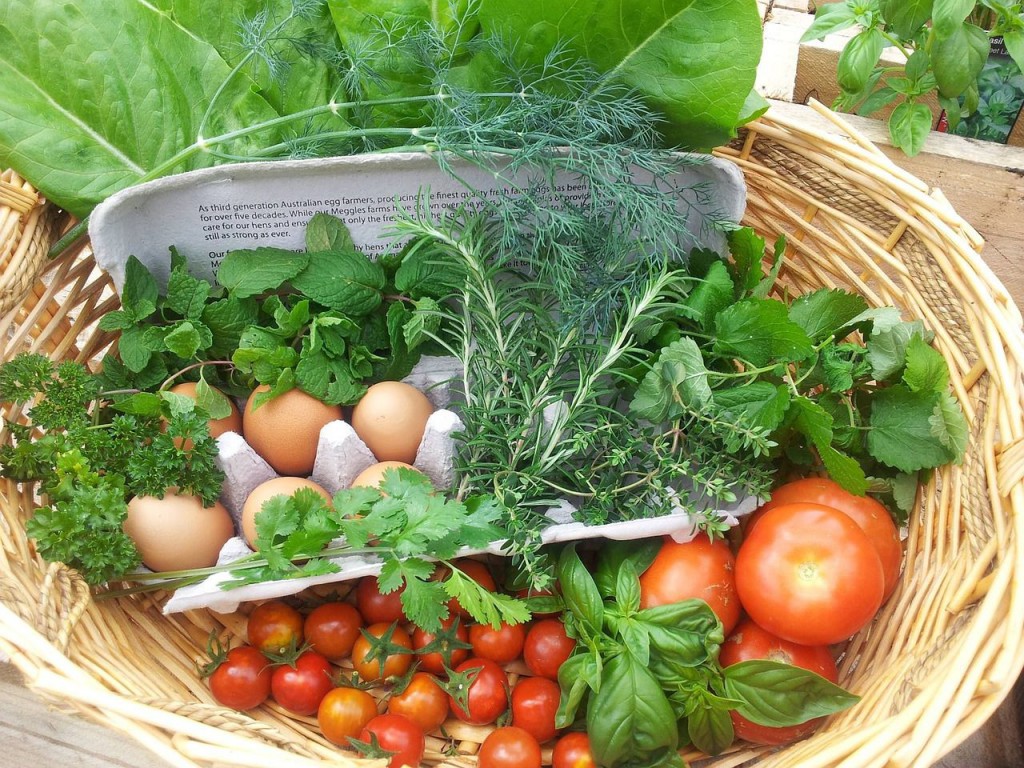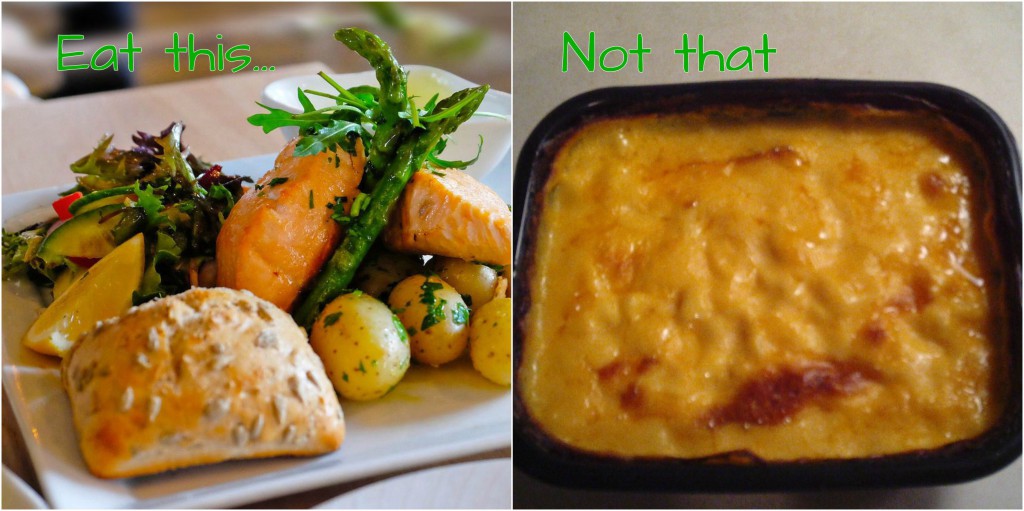
This article is the first in a four-part series on starting a whole foods diet – what are whole foods, a list of whole foods, tips to simplify shopping for them, and how to make eating them exciting so you’ll want to stick with it. By identifying what whole foods are, we can begin to see the relationship between them and our bodies, and how they affect our overall wellness.
1 – Starting a Whole Foods Diet: What are Whole Foods?
2 – Starting a Whole Foods Diet: List of Whole Foods
3 – Starting a Whole Foods Diet: Tips to Simplify Shopping
4 – Starting a Whole Foods Diet: How to Stick With It
What are Whole Foods?
Whether you’re looking to improve the way you feel, have more energy, get sick less often, or get into shape, one of the fastest ways to get results is to change the way you eat. Taking time to rid your body of the unnecessary load that’s been burdening it, and feeding it healthy whole foods will change your life in a huge way. Treating your body well is a total act of self love and self care.
I try not to use the word “diet” too often since it’s so closely associated with short term or fad ways of eating to lose weight, so our regular eating habits are what we’re referring to here, when it comes to eating a whole foods diet. So what does eating whole foods mean, what are whole foods, and why are they healthy?
I think the easiest way to explain what eating whole foods means is – to eat real foods that are naturally grown or raised. It really is that simple – one ingredient foods. The kind of food our grandparents and great grandparents ate straight from the farm.
A lot has changed since then, but even though we’re not all living on farms anymore we still have access to farm fresh foods, so even though we have to go about getting our food differently, there’s really no reason not to. Really, our health depends on it, maximizing our intake of whole foods can provide us with all the nutrients necessary to thrive in optimal health.
What Are the Benefits of Eating Whole Foods?
Some of the benefits of a whole foods diet are more energy and vitality, the ability to think clearly, stable moods, maintaining healthy weight, a strong immune system, healthy skin, healthy aging, and decreased risk of disease. As opposed to nutrient-poor processed foods which leave you feeling sluggish, toxic, starved of nutrients, and hungry all the time.
Just think of all the beautiful brightly colored plant based foods and how much a box of mac and cheese pales in comparison. It may taste good, but it sure doesn’t make you feel as light and energetic as real foods do, and it’s a surefire way to flare up inflammation in the gut, causing all sorts of health problems.
The beauty of whole foods is the plethora of delicious choices to satisfy every lifestyle whether you are a meat eater, vegetarian, vegan, or any other type of eater – when you are eating whole foods you feel truly satisfied. Eating live foods makes you feel alive.

Not only is the taste satisfying but you feel legitimately full from fiber so you tend to overeat less. Your gut is healthy and your body nourished from the absorption of high quality balanced nutrients, including vitamins and minerals. You also crave less sugar since your body feels satisfied by foods that keep your blood sugar levels stable.
The Pay Off of a Nutrient-Rich Diet
I’m not saying we shouldn’t ever eat another packaged food again, not all packaged foods are bad, but eating majority whole foods is really the best way to feed our body. Aiming for at least 75 percent whole foods will help feed our body with good defense against health concerns.
Personally, I’m not for calorie counting, or eating exact amounts of this and that because if we’re eating a variety of whole foods in moderate portions we really shouldn’t need to do that.
We are human, after all, and the goal here is not perfection. We’re most likely going to eat some processed foods, and there’s always an occasional BBQ, birthday party, work function, or whatever fun thing it may be that will take us away from our usual way of eating, and that’s okay.
The point is to increase our intake of whole foods overall on a regular basis, and enjoy the food we eat regardless, because in the end, enjoying life is the most important thing – but we get the most enjoyment out of life when we feel good!
A diet rich in whole foods affords us an awesome quality of life and is one of the best investments we can make in our self care, taking the time to map out a healthy way of eating that works for each of us is invaluable, and the pay off is a massive one for years to come.
So, if you’re in that place, where you are wanting to change but are unsure of how to go about it, I’m so glad you’re here. I want you to know that I can totally relate, I have been there too, which is why we’re going to break it down and make it as easy and practical as we can.
If I can accomplish only one thing through this series, it’s to convince you that absolutely anyone can make simple strides towards eating better.
If you have friends or family members that you think would be interested or would benefit from this series, please share these posts with them!
Love your body. Don’t worry about what the mirror or scale says…that will take care of itself when you start to take care of you.
Sariah Tate
For my favorite meal planning resources that offer smart and stress-free solutions to get delicious real food on the table for you and your family, check out my meal plans page.
Stay tuned for the next article in the Starting a Whole Foods Diet series, which will go over the list of whole foods =)
